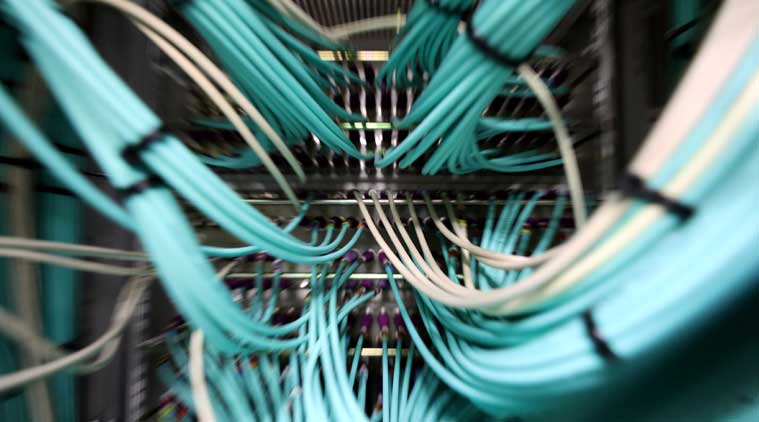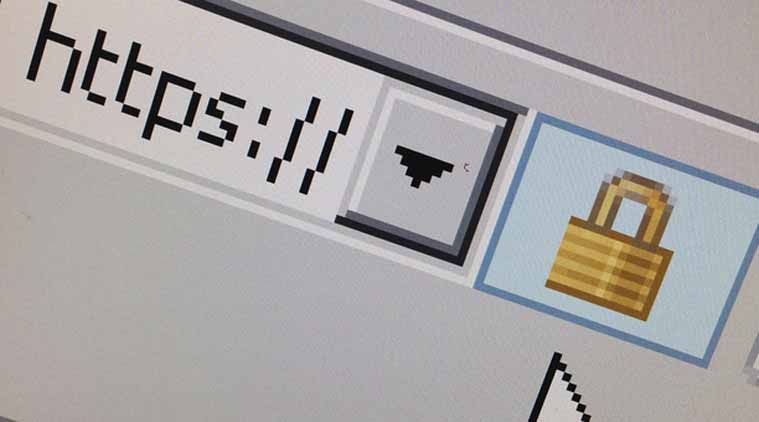Net Neutrality is over in the US after FCC vote: Here’s what it means
US Federal Communications Commission (FCC) has voted to end Net Neutrality, which barred Internet service providers (ISPs) from discriminating or favouring websites.
 Net Neutrality is over in the US: What does it mean and why does it matter. (Image source: Bloomberg)
Net Neutrality is over in the US: What does it mean and why does it matter. (Image source: Bloomberg)
The US Federal Communications Commission (FCC) has voted to end Net Neutrality, which barred Internet service providers (ISPs) from discriminating or favouring websites or throttling speed of certain services. The pro-Net Neutrality rules had been in place since 2015, but with the FCC vote these old rules no longer stand. Instead, FCC has removed most of the regulations around ISPs and in the words of FCC chairman Ajit Pai has gone back to “light-touch framework” for the internet. So what does the end of Net Neutrality in the US mean? Here’s a quick look.
What is Net Neutrality and why does it matter ?
Net neutrality is the basic principle, which states that all ISPs need to treat web traffic, data packets as equal. The concept of Net Neutrality ensures that your provider cannot charge you extra for access to a particular website. Or even put a zero-charge for a particular website or services, which might have paid the ISP for this so-called ‘zero-charge.’ In simple terms, all data packets are to be treated equally.
For example, Net Neutrality makes sure that your ISP cannot create a special data pack just for you to access to Netflix at a particular speed. It also makes sure that a particular service, website or app cannot be throttled by the ISP or blocked by the ISP under the garb of traffic management. So far India has stood for Net Neutrality and says ISPs cannot offer discriminatory data packs. India’s strong stance on Net Neutrality also meant that Facebook’s Free Basics plan was eventually shut down in the country.
Also read: Net Neutrality ends in the US after FCC votes against open Internet rules
Net Neutrality matters because as we have seen ISPs are no longer just providing internet connections, but also own content services, their own apps, etc. It makes sure that an ISP cannot lower speeds for a rival’s service, be it a video-streaming service or even a texting app.
So what has the US FCC done now? What was the earlier stance?
US FCC under the chairmanship of Ajit Pai has now reversed the earlier rules, which came in place in 2015. According to Ajit Pai’s statement, “It is time for us to restore internet freedom. We are restoring the light-touch framework that has governed the internet for most of its existence.” The Republican led commission voted 3-2 in favour of revoking the old rules. Pai also added there was no doubt what the FCC has done is legal.
 US FCC under the chairmanship of Ajit Pai has now reversed the earlier rules, which came in place in 2015. (Source: Reuters)
US FCC under the chairmanship of Ajit Pai has now reversed the earlier rules, which came in place in 2015. (Source: Reuters)
In 2015, the FCC had voted ISPs were not allowed to manipulate traffic. Zero-rating practices by players like AT&T were also seen as violation of net neutrality. Broadband providers had sued the FCC then for the pro Net Neutrality rules, but the federal appeals court had upheld the rules in 2016.
So what happens next for Net Neutrality in the US?
Net Neutrality has been repealed in the US, and for now it looks like there will be lawsuits to oppose the latest rules. According to Bloomberg, currently ISPs have “no plans for anti-competitive ‘fast lanes,'” but pro Net Neutrality activists are getting to ready to fight these new rules.
According to a Reuters report, New York Attorney General Eric Schneiderman and at least two other state law enforcement chiefs said they will would lead a multi-state legal challenge to the decision.
Schneiderman, a Democrat, was quoted as saying states “will sue to stop the FCC’s illegal rollback of net neutrality.” The attorney generals of Washington state and Pennsylvania also plan to file the suit.
Coming to internet companies, The Internet Association, a trade group representing companies such as Facebook Inc and Alphabet Inc and the American Civil Liberties Union (ACLU) said they opposed the FCC decision. ACLU will be fighting back against the new rules.
Meanwhile the ISPs are happy with the decision. According to Associated Press, AT&T senior executive vice president Bob Quinn said in a blog post that the internet “will continue to work tomorrow just as it always has.” The company says it will not block websites and throttle traffic based on content.







